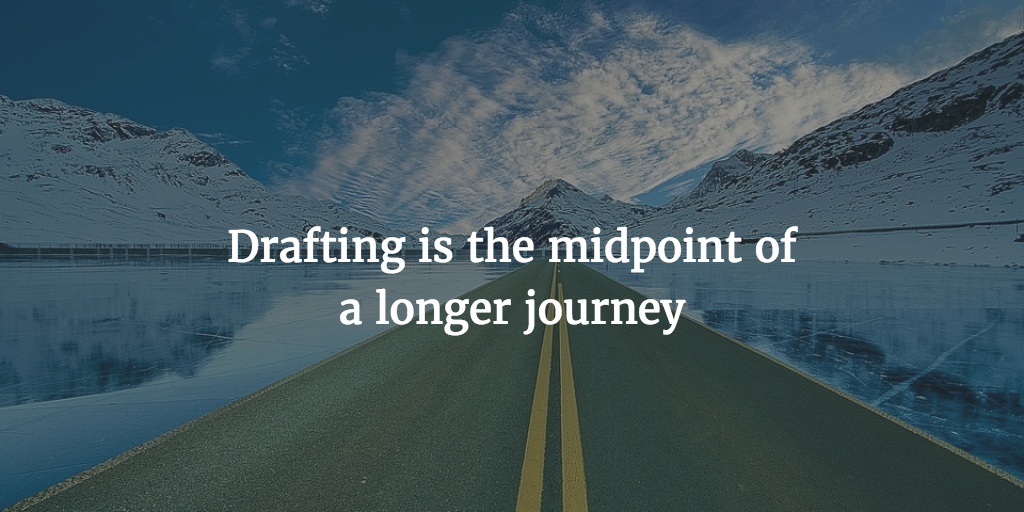A writer’s magazine published a roundup of profiles of authors with new books out. Each author answered that essential question: How long did it take you to write the book? Their answers ranged from two weeks to five years.
Your mileage may vary.
We’re fascinated with how long it takes other people to write things. The real question isn’t how long it took this person to write something, but how long it will take you to do something similar.
How long will it take you to write?
Before undertaking a writing project – whether a book or a blog post – we mentally estimate how long it should take, assessing two questions.
- When will it be done? That’s useful to know for scheduling purpose, particularly if you’re writing for work and collaborating with others.
- How much time (and effort) will you have to spend on it? This is trickier.
Professional writers often have a good handle on both the elapsed time until a deadline and the amount of effort it takes to get there. But without a good sense of your own process, you’re likely to try to measure by how long others take. Hence all of those questions.
Here’s how I would answer the question about how you will spend writing something:
- Longer than you think
- Longer than necessary
Let’s drill into those enigmatic answers.
Writing will take longer than you first think
Most of us calculate our estimates based on the time spent working on a draft, starting at the beginning and finishing at the end.
If we’re planning to write a 1,000 word post, we estimate how long it takes to write 1,000 words. Perhaps the answer is an hour or two.
If only life were so simple.
If we’ve been around the writing block a few times, we may account add time for spent reading, checking and revising those words. That’s a great start, but not quite enough.
Rarely do we account for time spent ahead of the writing:
- Meetings or conversations about the piece
- Research
- Time spent thinking about what we have
- Outlining
- Getting buy-in on the approach, outline, style, etc.
In the workplace, we often neglect to consider the time spent in the “last mile” of getting the piece to the reader:
- Revisions
- Editing
- Approvals and review cycles (How many people need to sign off on this?)
- Formatting
- Publication
All of that time often lies outside the time mentally budgeted for the task. We may feel disgruntled about having to spend more time and effort than we thought.
The drafting phase is just one small part of the overall writing process. Before writing, you must plan. And after writing, you have to do the revisions, editing, and processes involved in publishing. Account for those in your estimates.
Disclaimer: I can hear all of the fiction-writing “pantsers” mumbling that they plan as they write. Fair enough – although you do a certain type of inner research before starting. The planning part of this post applies more to nonfiction writers, and particularly those in the workplace. But fiction writers should not neglect to plan for the revision phase.
From The Writer’s Process:
Drafting is merely the midpoint in a longer journey, with untold hours of research and thought preceding it and uncertain hours of revision ahead.
You will probably spend more time than necessary
The effort invested in planning can save you time during drafting and revision.
Compare these two situations:
Scenario one: Someone asks you to write a blog post about a new version of your solution, so you rush off and draft something. 600 words, one hour. Not bad!
You turn give it back to the person who asked for it, only to find out that they wanted something slightly different, or that they hate the tone and style. You rework it, grumbling the whole time.
Scenario two: You get a request for a blog post. You ask the person about the target audience, the core objective, and the proposed tone and style. You send around a quick outline before you start drafting. While people are looking at it, you’ve got time to let the ideas and approach simmer in your head.
When you get the go-ahead, you write the post, and it sales through approvals without problems.
Despite the extra planning and delayed start, the second scenario is usually faster, and always more pleasant.
Yet we often skip the planning phase, particularly for short projects (like blog posts) that we think we should be able to churn out quickly.
Sometimes the best way to get more work done is to slow down and spend the time planning up front.
Over years of writing professionally, I came up with a system of estimating projects, accounting for each phase of the writing process (research, outlining, drafting, my revision, client revision, and approvals) then adding 20 percent. Almost inevitably, I needed that 20 percent buffer. It was protection against my own optimism.
How do you estimate your writing time? How accurate are your estimates? I’d love to hear your practices.
For more about planning work-related writing, see The Workplace Writer’s Process.

